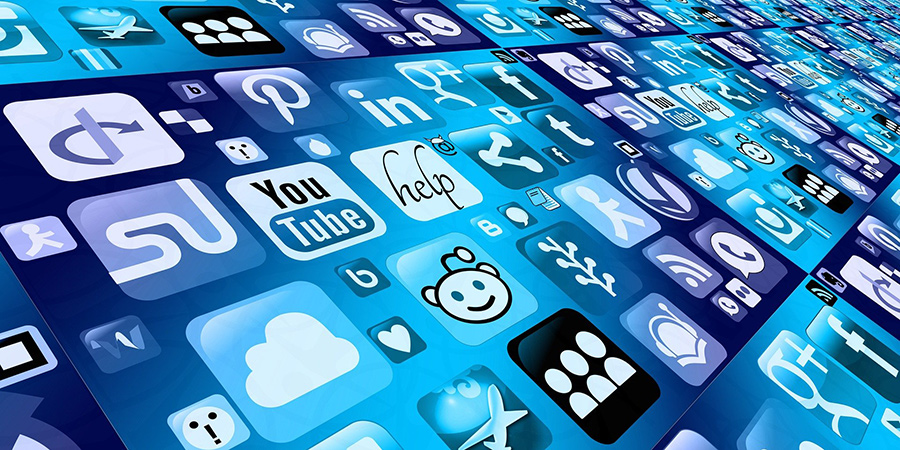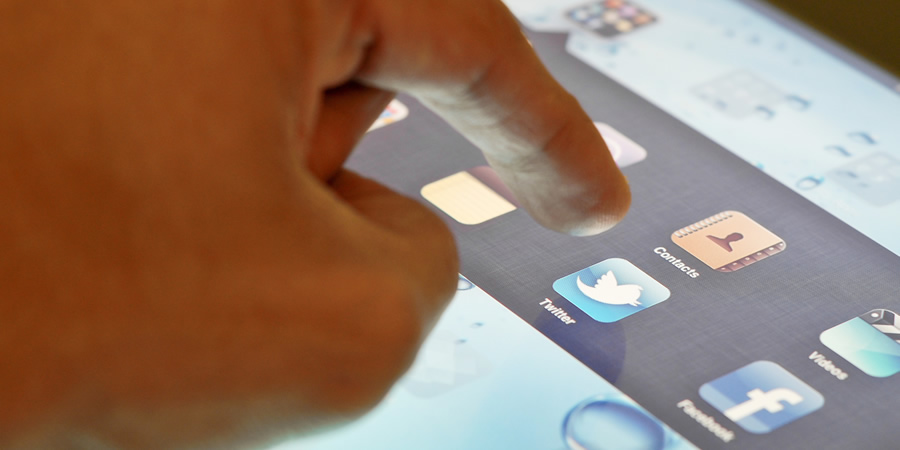How social media has changed comedy consumption

Social media has changed and evolved dramatically across the years. Facebook and Twitter weren't always the top players in sharing content, nor was social media itself such a keystone in the lives of many comedy fans as it is today.
If you're of a certain age, you'll remember MSN Messenger was actually the key tool; if you're of a different certain age you'll remember a time before the internet entirely! But now we live in a world of Twitter, Facebook, Instagram, TikTok and such like ruling things. So what have these social media platforms done for comedy and entertainment? Read on to find out.
Today's comedy
Essentially, social media has made it easier for comedy fans to discover new comedy; allowed people to connect with comedy stars easier, and keep up-to-date with what they're doing; created new comedy stars; and it's even introduced new types of comedy:
Many forms of entertainment - indeed, many other areas of global goods and commodities - have undergone a similar transformation. One notable example is online casino. In the 1990s and early 2000s, many online casinos flourished for the same reasons that they would experience rapid growth a decade later with the introduction of mobile online casinos: portability, accessibility, and interactivity. The delivery of the content made such a difference that expectations of the content itself changed. Comedy is undergoing a similar transformation now.
Sketch comedy, memes, accidentally captured hilarious moments, and funny statements and stories are all easily accessible via the various platforms that make up the media landscape. They are there every second, and the next thing will be there in the subsequent second.
If you head to video platforms you can see creators making new funny sketches every week nowadays, and people delivering oneliner jokes within moments of a topical event. That's a far cry from the speed comedy travelled in the 1990s.

The days before Twitter
Young readers could be forgiven for thinking that Twitter, the social media platform with an estimated 186 million annual users, has been around forever. However, it actually only went live in 2006, a relatively young website in the grand scheme of things. So what did people do before all of this?
Forums! Message boards are like a slower version of Twitter. Someone writes a post with a title and others leave comments below agreeing with what has been said, arguing against it, adding to the conversation and more... but no so much in real time. One of the very first forum sites, Delphi Forums, originally created in 1981, is still alive today. Meanwhile British Comedy Guide's own message board was born in 2006. It's still going today too, albeit with somewhat less posts-per-day than a decade ago.
Video in the pre-internet age
Video streaming was almost unheard of back in the early 2000s, as without sites like YouTube there was no way of quickly streaming anything. The most popular way of watching comedy shows and movies was the now defunct Blockbuster chain of shops.
YouTube - created 2005 - is obviously one of the biggest places for comedy now, be it straight-from-TV clips or originally generated content. YouTube has made it very simple for anyone to write a script, film a video and create a comedy channel, or share content.
It's hard to remember how awkward things used to be. The first preview clip British Comedy Guide was sent by a channel was a preview of Peep Show, probably around 2006... that was sent to us as a Real Player link that we had to upload to a page, and then visitors would have to download the file to their hard drive before watching it. When was the last time you used Real Player?!
Animation was big pre-YouTube though, particularly interactive Flash-based animations. Joe Cartoon - which is still going now - was one of the biggest humour sites on the internet. "Frog in a Blender" was downloaded at least 110 million times, and the site was making $25,000 per month from banner advertising back before the dotcom crash. But that's an area of comedy that's less ubiquitous now.
So, social media and the internet have come a long way in the past two decades and, in the process, have totally changed how we watch and create comedy, and it doesn't look like the changes are stopping any time soon...
